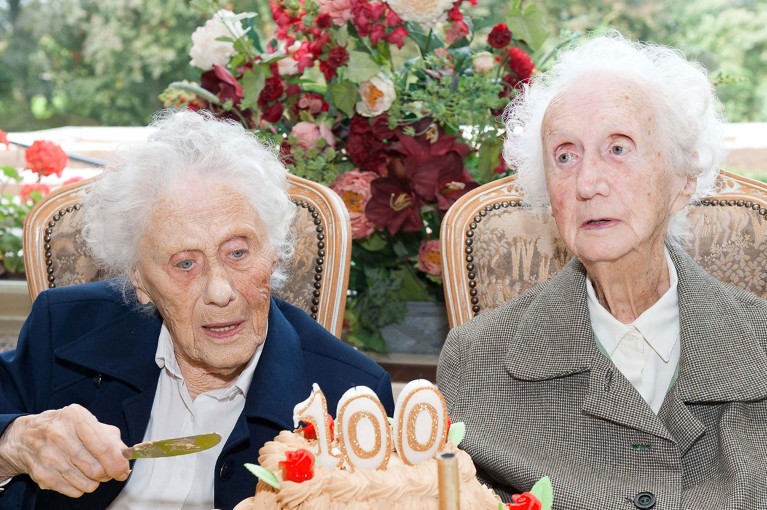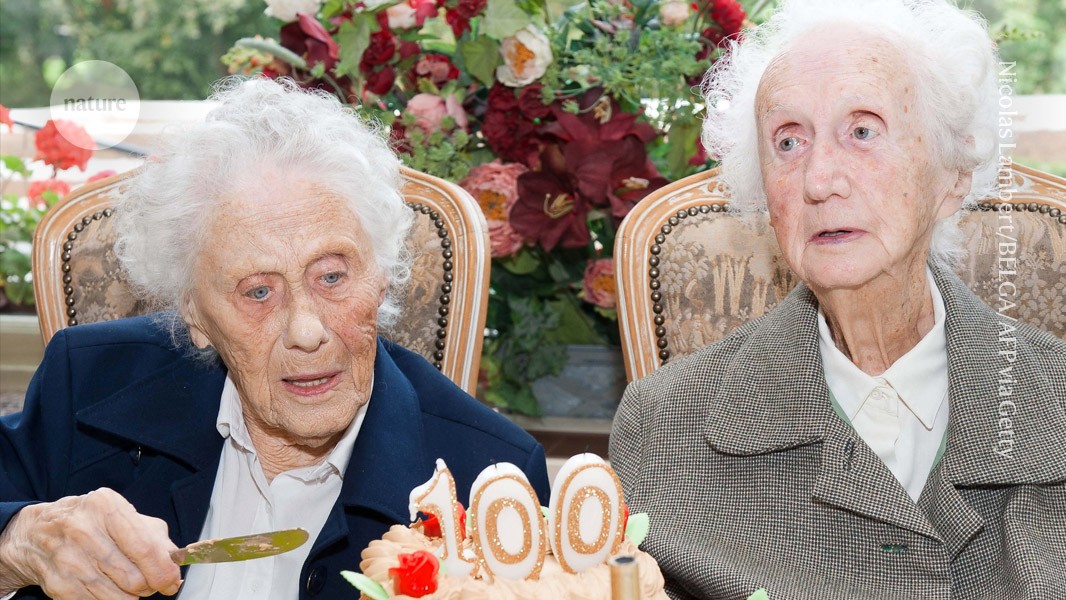
Credit: Nicolas Lambert/BELGA/AFP via Getty
Scientists in Boston, Massachusetts have made reprogrammed stem cells from the blood of centenarians. They plan to share the cells with other researchers to better understand the factors that contribute to a long and healthy life. Early experiments are already providing insights on brain ageing.
Centenarians offer an opportunity to study longevity. People who’ve lived to 100 have an amazing ability to bounce back from insult and injury, says George Murphy, a stem-cell biologist at the Boston University Chobanian & Avedisian School of Medicine. One centenarian he knows recovered from the 1912 Spanish flu and COVID-19, twice. One theory that explains centenarians’ robust age is that they possess a genetic makeup that protects them from diseases.
But testing that idea is a challenge. People of that age are rare, which makes blood and skin samples from them a precious resource for research. That gave Murphy and his colleagues the idea to create a bank of centenarian cells that could be shared among scientists.
“This bank is really exciting,” says Chiara Herzog, who studies epigenetics and ageing at Kings College London.
“It will be a very useful resource for the field,” says Vadim Gladyshev, an ageing researcher at Harvard Medical School in Boston.
Finding centenarians
Murphy collaborated with Tom Perls, a physician specializing in geriatrics, also at the Chobanian & Avedisian School of Medicine, who runs the largest study of people 100 years and older, the New England Centenarian Study. They searched for centenarians in US voter-registration lists, news articles and long-term-care facilities. Many were happy to participate “because they know how special they are”, says Perls.
Participants were assessed for their cognitive and physical abilities, and had samples of their blood collected. Many were cognitively healthy and cared for themselves.
For about 30 centenarians, the researchers isolated blood cells and reverted them to a pluripotent state, from which they could be turned into any cell type in the body. Induced pluripotent stem (iPS) cells lose many aspects of their ‘age’ through the reversion process without altering their genetic code. This allows researchers to use the cells to study the genetic determinants of ageing, says Herzog.


